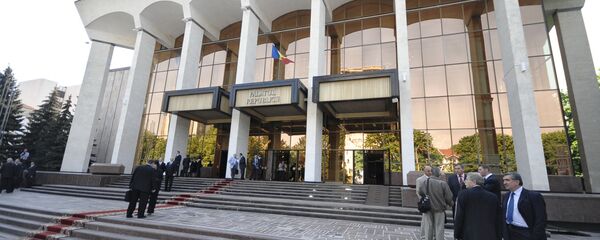The changes to Moldova's electoral system, which envision a shift from proportional to mixed-member proportional representation, were adopted by the country's parliamentarians on Thursday.
"Thursday's vote of the Parliament of the Republic of Moldova to implement changes to the country's electoral system directly counters the recent recommendations of the Venice Commission and OSCE Office for Democratic Institutions and Human Rights," Mogherini said in a statement.
Mogherini added that the European Union would continue to follow the developments in Moldova. The bloc will also assess the events within the context of Moldova's obligations under the Association Agreement with the European Union and as a member of the Council of Europe, the EU foreign policy chief continued.
The proposal to switch to the majority-vote system was submitted in March by the Democratic Party, which has the majority of seats in the parliament. The draft bill was sent to the Venice Commission of the Council of Europe for the revision. After proposal's revision, the Venice Commission and the OSCE Office for Democratic Institutions and Human Rights stated that the proposed changes to the Moldovan electoral system raised serious concerns over the risks of influence on candidates, excessive thresholds for parliamentary representation in the proportional component, and risks of inadequate representation of minorities and women.
The bill providing for the transition to mixed electoral system also caused controversy among the Moldovan public, triggered mass protests.






